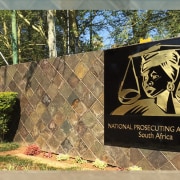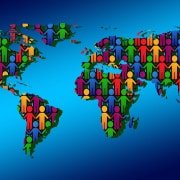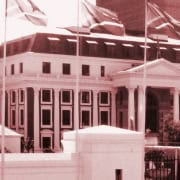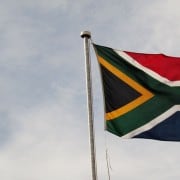|
Getting your Trinity Audio player ready...
|
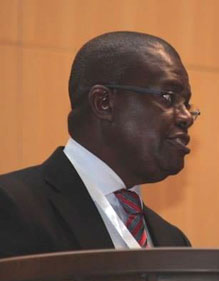 By Valencia Talane
By Valencia Talane
Mail & Guardian executive chairman and African media entrepreneur Trevor Ncube on Wednesday challenged delegates at the Integrity and Corruption in the Media conference in Johannesburg to leave with solutions for the loss of credibility and respect of journalism as a profession.
The event entered its second and last day on Thursday and has brought together journalists, media trainers and owners, and industry unionists. It is a joint enterprise of the African Media Initiative (AMI) and Fes Media Africa.
“We are not perceived as professionally as we would like to be,” said Ncube. “I’m wondering when the conference is done and you guys pack your bags whether there’ll be any difference.”
He added that it is important to get the image of journalism to a point where it is clean and is practiced with pride. “Corruption is in our midst and it comes in various facets. Sometimes we reduce it to the simple gesture of financial consideration, but it has a more insidious side.”
“The real impact of corruption is to undermine journalism’s public interest agenda and decrease this in favour of vested interests that can be financial, political, religious or that of the owner.”
Several questions and issues were raised throughout the first morning of the conference. These ranged from the suggestion that a culture of expectation was growing among journalists who now only cover stories that have a personal benefit for them, and freebies that are offered by corporates in return for favourable product reviews, to the insistence by politicians that journalists support their agenda over others – the accounts of delegates from across Africa were damning.
Watchdog vs lapdog
With the continent’s dynamic political climate, the issue of the role of the media in keeping public interest in check was bound to be raised. Following Ncube’s address, attendees discussed whether the media’s role of watchdog for the people has been replaced by that of lapdog. The debate was primarily concerned with how the agenda of any media house is set and whether or not it realises the dangers of abuse by the politically powerful or big business.
Renowned journalist Gwen Lister, who now chairs the Namibian Media Trust, defended the need for journalists to question power and stay neutral in their reporting.
“In the heart of the media’s commitment is public service,” argued Lister. “Ideally, watchdog journalism incorporates a higher standard of accuracy, fairness, ethics and professionalism and is best practiced in media institutions that strongly adhere to the principle of editorial independence.”
Joseph Warungu, director of content development for AMI, argued the case for a concept he calls development journalism, which he said requires of the journalist to dig deeper than just the story that satisfies their publication.
“Investigative journalism is a tool that can be used by any journalist covering any beat in a newspaper, but development journalism ensures that the journalist stays on beyond the story to support a community in getting answers [from its public representatives].”
Who watches the watchdogs?
Corruption Watch deputy director Bongi Mlangeni also addressed delegates, revealing that despite the more than 6 000 reports received from the public in its two and a half-year existence, none related to corruption or misconduct in the media.
“While we talk about corruption in the media here, it's something that is in fact hidden from the public eye,” said Mlangeni. “It is not something that the media itself tries as much as possible to expose.”
The public generally views journalists as the more reliable informants, part of those who are the conscience of our society, she added.
“Are they immune from corruption that takes place in their society?” she asked. “They are framed by the norms and values of the society that they are living in. If they live in a society where bribery and other forms of corruption are accepted, chances are some of them will partake in corruption themselves.”
Mlangeni added that the dependency of the media in government as their biggest advertisers means that they are susceptible to abuse by politicians.
“Another point that comes up in the SADC region in relation to corruption in the media is that journalists are not paid well. How much you are paid has nothing to do with whether you take part in corruption or not.”
Loughty Dube, the executive director of the Voluntary Media Council of Zimbabwe agreed: “According to Transparency International, low salaries do not contribute at all to corruption. It’s an issue of ethics, full stop."
Mlangeni further said civil society organisations such as Corruption Watch have a unique opportunity to hold the media to account just as much as is done with public officials.
Examples of incidents of unethical acts shared by journalists
Several delegates shared with the rest of the conference their experiences of unethical behaviour by journalists. Some of the alleged examples are:
- A football writer only covering matches if they get tickets or other goodies for their effort from the teams or sponsors;
- A football writer altering sports international results to make their home country’s team look good;
- A journalist and a photographer getting into a physical fight over a wristwatch delivered to the newsroom;
- Journalists being in the pockets of government ministers who then pay for their trips and accommodation for covering their service delivery engagements;
- Journalists refusing to cover events unless “transport allowance” is included in the invite.


